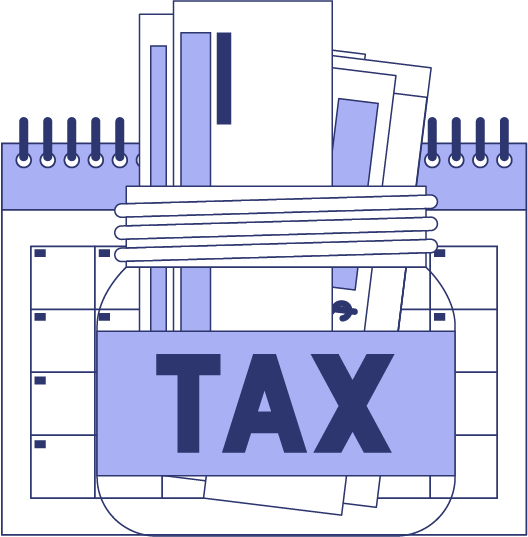Table of Content
Share This Article
- Reading Time: 12 Minutes
- Published: September 13, 2021
- Last Updated: February 13, 2025
Small business can be defined as an active trading business with 0 to 19 employees. From the tax perspective, it can be defined as a business with less than A$10 million turnovers and operating for all or part of the income year. Small businesses are a vital part of the Australian economy. It helps generate over 5 million jobs, and the total small business accounts for more than 3 million, which is 90% of entire Australia’s business.
Consequently, the Australian Government understands the benefits that small business offers to the economy, thus it provides a range of grants, programmes, funding opportunities, and tax breaks to boost small businesses. Though you must note that Government, to avoid businesses from splitting activities to slip under the A$10 million threshold, make it necessary to consider the aggregated turnover of every connected business.
As a small business owner, juggling multiple tasks and small business accounting and taxation can be complicated as the latter requires a lot of time and effort. Wrongful accounting or taxation may land you in a costly and time-consuming fiasco. Having taxation and outsourced accounting service partner is a way to go about it. However, a basic understanding of the overall taxation and accounting process will make the process easier and pave the way for success for your small business. Once you through this article, you will have a clear understanding of the following
TYPES OF TAXATION
Different types of taxes could apply to your small business that you must be aware of. Australian Taxation Office (ATO) is Australia’s primary revenue collection agency and is responsible for tax administration at the federal level, while few taxes are state-based. Here are some taxes applicable to businesses in Australia –
- Income tax for business
- Capital gains tax (CGT)
- Fringe benefits tax (FBT)
- Pay as you go (PAYG) withholding
- Pay as you go (PAYG) instalments
- Goods and Services Tax (GST)
- Fuel tax credits
- Wine equalisation tax
- Luxury car tax
- Payroll tax
- Land tax
Not every tax stated above applies to your business. It is essential to understand which tax is applicable or which tax is beneficial for your small business so you can voluntarily register for it. Take the help of your taxation and accounting outsourcing partner to help identity taxes relevant to your business.
INCOME TAX FOR BUSINESS
Income tax has to the top of this list as this applies to every business and business owner. One can opt for four kinds of business structures if they want to run a small business, and each structure has a different tax implication. Let us discuss each business structure and its income tax rates –
i) Sole Trader:
This form of business is where you alone own and run the business. In such a case, you are taxed at the same rate as individual tax. Here are the individual tax rates for the income year 2020-2021.
| Taxable income | Tax on this income |
| 0 – A$18,200 | Nil |
| A$18,201 – A$45,000 | 19 cents for each A$1 over A$18,200 |
| A$45,001 – A$120,000 | A$5,092 plus 32.5 cents for each A$1 over A$45,000 |
| A$120,001 – A$180,000 | A$29,467 plus 37 cents for each A$1 over A$120,000 |
| A$180,001 and over | A$51,667 plus 45 cents for each A$1 over A$180,000 |
ii) Partnership: A partnership structure comprises two or more people and distributes income or losses among themselves in any agreed-upon ratio. A partnership business entity is not taxable, but it must lodge a partnership tax return. Partners are treated as a separate individuals and thus are taxed on their respective shares of profit and are entitled to a deduction on their share of loss as lodged in the partnership tax return.
iii) Company: A company is an entity that has a legal existence separate from its owners and has perpetual succession. There are few company forms you can choose from, like Proprietary Limited (Pty Ltd), Limited (Ltd), No Liability (NL) and so on.
The company tax rate is 30%, except for the base rate entity whose tax rate is 25% for the income year 2021–22. So, what is a base rate entity, one might ask? To be a base rate entity, one must –Have an aggregated turnover of less than A$50 million (for the income year 2021-2021)Have 80% or less of their assessable income as passive income. In this case, passive income could be rent, royalties, interest income, net capital gain, and a few more.
iv) Trust: Taxation for trust structure is similar to that of partnership structure. A trustee is taxed on their respective shares of profit and is entitled to a deduction on their share of loss. Additionally, they have to lodge in the trust tax return. However, the difference is that beneficiaries declare the amount of their entitlement to the trust’s income in their tax return, and they have to pay tax on it even if they didn’t receive the income.You could be just starting a business, or maybe you already own a business. In both cases, you must have a detailed discussion with your tax advisor or accounting partner. In this case, even an online accounting services provider could be of great help to understand your taxation need and help select or restructure your business accordingly.
CAPITAL GAINS TAX (CGT): Capital gain tax is applicable when there is any capital gain arising from selling a business asset. It forms a part of your income tax itself. CGT can also apply to sell your home if you are a home business owner or use your home for business.
FRINGE BENEFITS TAX (FBT): Fringe benefits tax is the tax applicable on fringe benefits. This tax is not included in the income tax. Fringe benefits are simply the benefits provided to your employees.
Fringe benefits are vital for business and can be a useful way to attract quality staff. You can provide your employee with low-interest loans, vehicles for private use, goods at a discount, or even reimburse private expenses. It is entirely legal to provide fringe benefits, but you must meet your FBT obligations. If you provide fringe benefits to your employee, you need to register for FBT.
PAY AS YOU GO (PAYG) WITHHOLDING: Pay As You Go withholding is an arrangement wherein you withhold a part of the payment from employees, contractors, directors or businesses who don’t quote their Australian Business Number (ABN). You are paying their income tax directly on their behalf. If you are to withhold payments, you must register for PAYG withholding, after which you have to pay the withheld amount at regular intervals to the ATO.
PAY AS YOU GO (PAYG) INSTALMENTS: Pay As You Go instalments is an arrangement wherein you pay your income tax in instalments when your business or investment income exceeds the threshold. The threshold differs for different business structures.In the case of individuals, partnership and trust structure, you need to report PAYG instalment
- If in your last tax return you have reported gross business and/or investment income of A$4,000 or more
- If your adjusted balance of assessment on your last assessed tax return was A$1000 or more
- If your estimated notional tax is A$500 or more
In the case of a company, you need to report PAYG instalment –
- If in your last tax return you have reported gross business and/or investment income of A$2 million or more
- If your estimated notional tax is A$500 or more
- If you are the head of a consolidated group
You could start paying PAYG instalment voluntarily if you are expecting to make a profit or reduce the chance of paying a large amount of tax in one go. You have to report your PAYG instalments in Business Activity Statement (BAS) case you are not registered for GST. Otherwise, you have to report it in Instalment Activity Statement (IAS).
GOODS AND SERVICES TAX (GST): Goods and services tax is a value-added tax on most goods, services and other items sold or consumed. The tax rate is 10% for goods and services with few exemptions on certain food, healthcare and housing items. It is obligatory to register for GST if your business’s annual turnover crosses or is expected to cross the threshold of $75,000 turnover. However, you can also voluntarily register for GST.
FUEL TAX CREDITS: Fuel Tax Credit is credit that you claim back if your business uses fuel in its operation. The claim could be for fuel use in machinery, plant, equipment, heavy vehicles over 4.5 tonnes and light vehicles on private roads (not on public roads). To take the fuel tax credit, you must be a GST-registered business.
WINE EQUALISATION TAX (WET): Wine Equalisation Tax applies to businesses who make wine, import wine into Australia or sell it wholesale. The WET rate is 29% on wholesale value and is usually payable if you are GST registered business. However, in the case of imports of wine WET is payable irrespective of whether you are registered for GST.
LUXURY CAR TAX (LCT): Luxury Car Tax is a tax payable on-sell or import of a luxury car, and it is imposed at 33%. It is paid by businesses involved in selling or importing luxury cars, dealers and individuals alike. Cars with a value over the threshold of A$77,565 (for fuel-efficient vehicles) and A$68,740 (for other vehicles) attract luxury car tax.
PAYROLL TAX: Payroll tax is a tax you pay when your total Australian wages are over the relevant state or territory’s tax-free threshold. Payroll tax is derived from the total wages you pay each month. The tax rate differs from one state or territory to another.
LAND TAX: There are a few properties related tax that you must pay in case your business owns or purchased land for conducting business activity. States, territories and local councils charge these taxes. Two important taxes if you already own a property for your business are rates and land tax. Rates are imposed by the local council and are charged every quarter. Land tax is imposed by state and territory governments (except for the Northern Territory) and is charged annually.
CONCESSIONS FOR SMALL BUSINESS ENTITIES :
There are tax deductions and concessions that small businesses can apply for, which will help reduce the tax burden. For fear of applying for the wrong tax break, many businesses lose out on an opportunity that fits their business perfectly. Almost all major business expenses incurred in the process of delivering the final output are deductible. This article, “Everything you must know about Tax Deductions for Your Small Business“, will be a perfect guide to help you understand what expenses are deductible and which ones are not deductible. Let us discuss a few deductions and concessions based on different types of taxes that you might apply to your business
-1. Income Tax Concession : As a small business, you enjoy few income tax concessions like –
- Deductions for professional expenses for start-ups
- Small business restructure rollover
- Simplified trading stock rules
- Immediate deductions for prepaid expenses
- Two-year amendment period
2. Capital gains tax (CGT) Concession : Four CGT concessions can help you eliminate or reduce your small business’s capital gains. There is no limit to these concessions; however, these concessions are applicable for active assets, businesses that satisfy the $2m turnover threshold. The net CGT assets of the taxpayer do not exceed $6m.
3. FBT Deduction: A few fringes benefits you offer to your employees are exempted from taxation, such as car parking costs and costs incurred for work-related devices.4. Goods and Services Tax (GST) Concessions
As a small business, you enjoy few GST concessions like –
- Accounting for GST on a cash basis
- Paying GST by instalments
- Annual apportionment of GST input tax credits
- Excise concessions
5. Other Concession
- You can claim instant asset write-off in the year the asset is first used or installed, ready for use. However, this concession is applicable if you apply the simplified depreciation rules. When the asset is installed and ready to use and the amount you can claim is GST exclusive. This concession is also applicable to second-hand assets.
- A deduction is also available for the upkeep of assets like machinery, tools or premises used, that is, repairs, replacement, maintenance expenses. These expenses should not be a capital cost which means they can’t replace an item.
- Another deductible expense that is incurred in producing assessable income will be salary and wages. You can claim a deduction on salary paid to employees and salary paid to yourself provided the salary is paid for the course of the business. This does not apply to salary to self and partners in sole traders and partnerships businesses.
- You can claim a deduction for a contribution made to employees’ super fund and your super fund if self-employed.
- Traveling expenses for your employee and yourself can usually be claimed. However, some expenses might fall under the fringe benefits tax.
- Car expense can also be deducted if you use the vehicle in business operations.
- Cost on advertisement and sponsorship for promoting your business, selling trading stocks and hiring an employee.
- Loss on bad debt is deductible if written off as bad in the same year that a deduction is claimed.
- If you incur an expense to borrow money, this expense can be claimed as a deduction provided expense is utilised to produce assessable income.
- Insurance expenses like worker compensation insurance, fire insurance, car insurance for car use for business purposes, and other insurance expense are also deductible.
- Any losses due to theft or stealing by an employee may be allowable deductions.
- You can claim for telephone bills, that is, calls and rentals you use for business only. Claims on installation are not allowed.
- You can claim tax management expenses as deductions. This can include the cost of a bookkeeper or outsourced bookkeeping services, cost on outsourced accounting services for preparing a tax return and activity statements, cost on tax advisor for lodging tax return, cost on tax audit etc.
- If your work is done from home or is a , you can usually claim deductions for expenses on the part used for business purposes.
LODGING AND PAYING YOUR TAX:
As a business owner or individual, you need to lodge an Income Tax Return every year. Most businesses also need to lodge activity statements, either IAS or BAS. You can read our article “Business Activity Statements (BAS) for Small Businesses Explained” to understand what is important detail like payment cycle & due dates. A lot of taxes we talked about earlier are part of BAS; however, you may also have to lodge and reports a few other taxes as well. It’s vital to lodge and pay your tax on time. You can make ATO payment less stressful for yourself by preparing yourself in advance.RECORD KEEPINGRecord keeping is a vital task for any business owner. Having an accurate and well-organised record can help you immensely in the decision-making process. Additionally, it is mandatory to keep records of all transactions related to your business. Few records that one must keep for five years according to the tax laws are –
- Sales receipts
- Credit card statements
- Bank statements
- Asset purchases
- Expense invoices
- Payroll records
- Vehicle records
- Lists of debtors and creditors
You can either keep these records in the form of electronic or in paper format. You can make use of your accounting software or dedicated record-keeping software as well.Tax Planning Tips
- First and foremost, it is important to understand that a tax break is not a cash hand-out but a deduction from your taxable profit. So, if you have a purchase decision in mind just for the tax deduction, you might as well rethink your decision.
- Talk with your accounting and taxation partner, understand what is required for your business and convey what assistance you expect from them as well.
- Restructure your business if required. Discussion with your accounting and taxation partner, as we pointed earlier, will put some light on whether your business structure is most effective for taxation.
- Prepare yourself way ahead of tax time instead of rushing everything through at the last minute.
- In case your business has employees make sure you pay superannuation before 30th June. This will help you receive a tax deduction on a timely basis, and don’t forget to pay superannuation for yourself.
- Plan your purchase and expenses that are deductible to make the payments before the end of June this way, and you can take a deduction in that year.
- There are many deadlines provided, so many variances of taxes are there. While few taxes have a fixed deadline, however, few taxes deadlines are not absolute. Nevertheless, we suggest you always lodge and pay your taxes on time to avoid the forthcoming issue.
- Always lodge your taxes even if you have suffered losses and are in no capacity to pay the tax.
- Stir clear of things that might land you in trouble with the ATO.
Taxation for small businesses does not have to be complicated. You just need to be aware of the taxation rule and, in some cases, be aware of state, territory or council-based taxes to stir clear of any scrutiny. You can consult with accounting firms online who firmly hold the Australian Taxation system like ours, Whiz Consulting. We can help you with bookkeeping services in Sydney, Melbourne, Queensland and other parts of Australia. We also provide tax assistance and accounting outsourcing that helps you stay compliant with the federal and state, territory or council taxation regulations.

Get customized plan that supports your growth

Thousands of business owners trust Whiz to manage their account
Let us take care of your books and make this financial year a good one.








